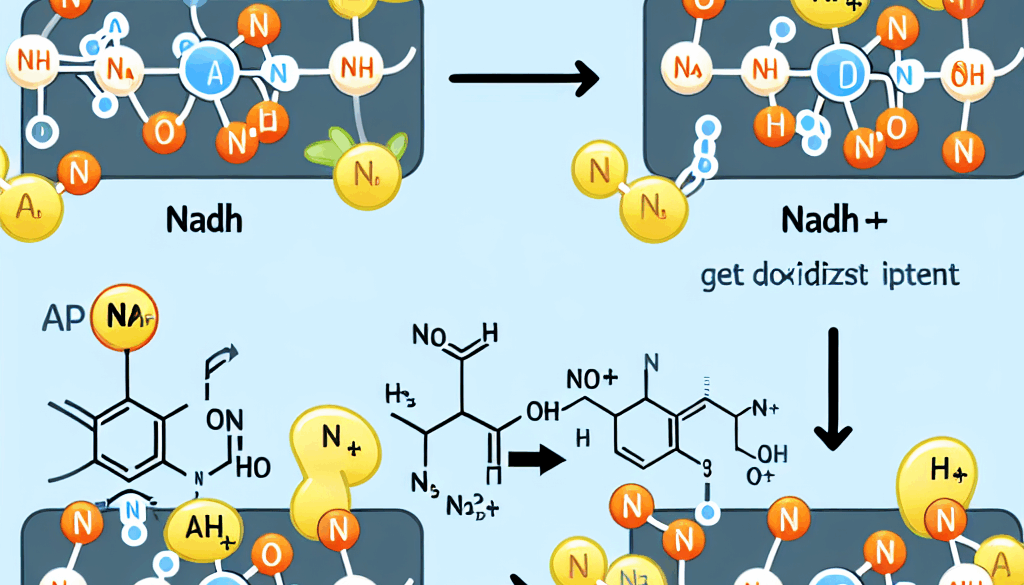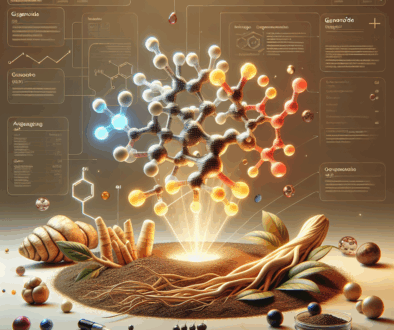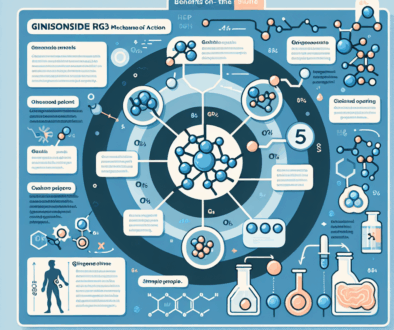Is NADH Oxidized or Reduced in Reactions?
-
Table of Contents
- NADH in Biochemical Reactions: Is It Oxidized or Reduced?
- Understanding NADH in Cellular Metabolism
- Basics of Redox Reactions
- Role of NADH in Redox Reactions
- Is NADH Oxidized or Reduced?
- Glycolysis and the Krebs Cycle
- Electron Transport Chain and Oxidative Phosphorylation
- Implications of NADH Oxidation and Reduction
- Conclusion
- Explore ETprotein’s High-Quality Protein Products
NADH in Biochemical Reactions: Is It Oxidized or Reduced?
In the intricate dance of biochemical reactions that power life, the roles of molecules like NADH (Nicotinamide Adenine Dinucleotide + Hydrogen) are crucial. Understanding whether NADH is oxidized or reduced in these reactions not only sheds light on fundamental biological processes but also has implications for health, disease treatment, and bioenergy production. This article explores the dual role of NADH in cellular metabolism, focusing on its behavior in redox reactions.
Understanding NADH in Cellular Metabolism
NADH stands as a central player in the metabolic processes of living cells. It acts as a carrier of electrons and protons, essential components in the energy production pathway. Before delving into whether NADH is oxidized or reduced, it’s crucial to understand some basics about redox reactions and how NADH fits into these processes.
Basics of Redox Reactions
Redox reactions involve the transfer of electrons between two substances. These reactions are fundamental for cellular respiration and photosynthesis, processes that convert energy into forms that cells can use. In redox terminology:
- Oxidation refers to the loss of electrons.
- Reduction refers to the gain of electrons.
These reactions are always coupled because an electron lost by one substance must be gained by another.
Role of NADH in Redox Reactions
NADH functions as a reducing agent in various biochemical pathways. It carries electrons derived from the oxidation of nutrients and delivers them to other molecules that act as electron acceptors. This transfer of electrons is crucial for the synthesis of ATP, the energy currency of the cell.
Is NADH Oxidized or Reduced?
To address whether NADH is oxidized or reduced, it is essential to look at its involvement in metabolic pathways like glycolysis, the Krebs cycle, and the electron transport chain.
Glycolysis and the Krebs Cycle
In glycolysis and the Krebs cycle, NAD+ is reduced to NADH. Here’s how:
- In glycolysis, glucose is broken down into pyruvate, producing ATP and reducing NAD+ to NADH.
- In the Krebs cycle, further breakdown of pyruvate occurs, and more NAD+ is reduced to NADH.
In these pathways, NADH is formed as a reduced version of NAD+ by gaining electrons.
Electron Transport Chain and Oxidative Phosphorylation
The electron transport chain is where NADH is oxidized back into NAD+. This process occurs in the mitochondria of eukaryotic cells and involves several steps:
- NADH donates the electrons it carried from glycolysis and the Krebs cycle to the electron transport chain.
- These electrons are passed along a series of carriers and finally to oxygen, which is reduced to water.
- The flow of electrons through the chain helps pump protons across the mitochondrial membrane, creating a proton gradient that drives the synthesis of ATP.
Thus, in the electron transport chain, NADH is oxidized, losing electrons and reverting to NAD+.
Implications of NADH Oxidation and Reduction
The cyclic nature of NADH being reduced and oxidized is vital for cellular energy production. Here are some key implications:
- Energy Production: The oxidation of NADH in the electron transport chain is a primary source of ATP in aerobic organisms.
- Regulation of Metabolic Pathways: The ratio of NAD+ to NADH within a cell regulates various metabolic pathways, influencing cellular health and function.
- Disease Treatment: Disruptions in NAD+/NADH balance are linked to diseases such as diabetes, cancer, and neurodegeneration. Understanding these processes can lead to better therapeutic strategies.
Conclusion
In summary, NADH can be both oxidized and reduced, depending on the specific biochemical pathway. It is reduced (gains electrons) during glycolysis and the Krebs cycle, and it is oxidized (loses electrons) during the electron transport chain. This dual role underscores its importance in cellular metabolism and energy production. By facilitating the transfer of electrons, NADH not only supports the synthesis of ATP but also plays a critical role in maintaining the health and functionality of cells.
Explore ETprotein’s High-Quality Protein Products
If you are interested in enhancing your health and dietary options with high-quality protein products, consider exploring ETprotein’s offerings. Their extensive range of organic and allergen-free proteins is perfect for various applications, from sports nutrition to health and wellness products. For more information or to sample their products, please contact sales(at)ETprotein.com today.
ETprotein is NADH Factory Manufacturer and Supplier in China, Check further information by visiting the NADH Product Page
Request Quotation and Samples of NADH from ETprotein
About ETprotein
ETprotein, a reputable protein and elite nutrition ingredients NADH Chinese factory manufacturer and supplier, is renowned for producing, stocking, exporting, and delivering the highest quality organic bulk vegan proteins and elite nutritional ingredients NADH. They include Organic rice protein, clear rice protein, pea protein, clear pea protein, watermelon seed protein, pumpkin seed protein, sunflower seed protein, mung bean protein, peanut protein. Their offerings, characterized by a neutral taste, non-GMO, allergen-free attributes, cater to a diverse range of industries. They serve nutraceutical, pharmaceutical, cosmeceutical, veterinary, as well as food and beverage finished product distributors, traders, and manufacturers across Europe, USA, Canada, Australia, Thailand, Japan, Korea, Brazil, and Chile, among others.
ETprotein specialization includes exporting and delivering tailor-made protein powder and finished nutritional supplements. Their extensive product range covers sectors like Food and Beverage, Sports Nutrition, Weight Management, Dietary Supplements, Health and Wellness Products, and Infant Formula, ensuring comprehensive solutions to meet all your protein needs.
As a trusted company by leading global food and beverage brands and Fortune 500 companies, ETprotein reinforces China’s reputation in the global arena. For more information or to sample their products, please contact them and email sales(at)ETprotein.com today.











